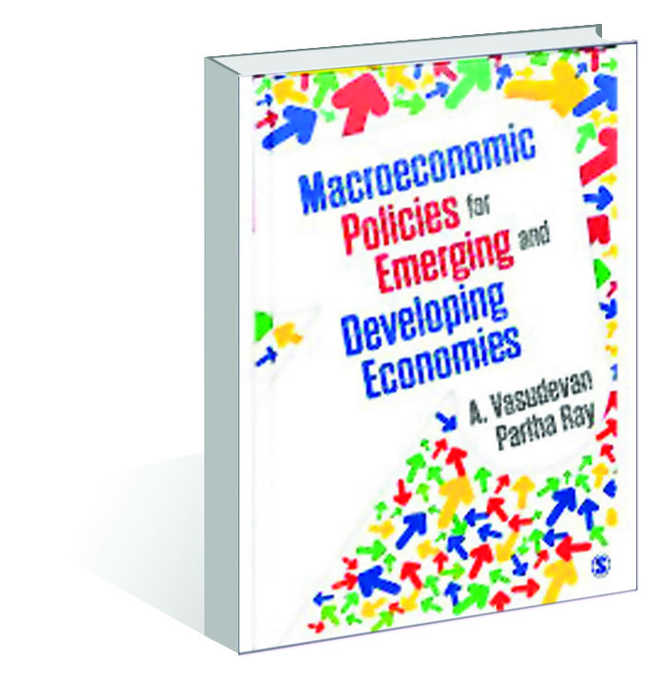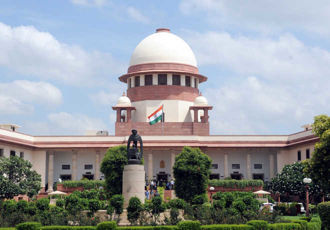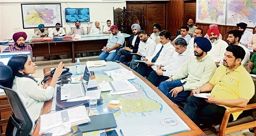
Macroeconomic Policies for Emerging and Developing Economies by A. Vasudevan & Partha Ray. Sage. Pages 220. Rs 895
Rachna Singh
Come February, and we wait with bated breath for the Union Budget. The minutes of the Monetary Policy Committee meetings also receive their share of media hype. So, for the common man, the ambit of macroeconomic policy is limited to the tax rates announced in the Budget and repo rates or inflation rates announced by the RBI Governor.
For most of us, the processes and institutions underpinning the macroeconomic policies are unchartered territory. Vasudevan and Partha Ray’s book, Macroeconomic Policies for Emerging and Developing Economies, fills this gap but in doing so, it does not limit the discourse to the conventional parameters of macroeconomics. The traditional toolkit of fiscal and monetary policy is examined and analysed but treated as an inextricable part of development strategy and policy making. The authors argue that the attempt to draw a distinction between macroeconomics and development strategy is facile as the two are intermittently interlinked.
What makes the book interesting is the fact that the focus is not simply on the here and now of policy making but also on the manner in which macroeconomics changed and evolved after the Global Financial Crisis (GFC) and economic meltdown of 2008. As YV Reddy, former Governor, RBI, says in the Foreword, “the book does a commendable job to include diverse elements of macroeconomic policies from the vantage point of post-crisis world.”
The book is, for the most part, an academic discourse on monetary policy, fiscal policy, development strategy, exchange rate policies, capital flows, etc, and yet the narrative is not dry that one may normally associates with a book on economic policies. The narrative is structured to make it interesting. So, every topic begins with an aperitif, so to speak, aptly called ‘The First Sip’. The subject then gathers momentum and diversifies into a multi-course menu which a connoisseur may enthusiastically partake of while the more impatient reader may limit his meal to a sample tasting. Continuing with the culinary metaphor, the authors end the book with ‘The Desserts’.
Another facet that adds an unusual flavour to the book are the literary analogies that the authors use to strengthen their argument. To explain the importance of globalisation, the authors refer to the problems faced by Daniel Defoe’s Robinson Crusoe who is stranded on an island with no communication with the outside world. John Donne’s quote “No man is an island, entire of itself” makes the argument in favour of openness of economy more pertinent.
The authors’ promise that the book is not just another conventional book on MEPs is also borne out by the quirky asides and opinions that emerge even as you are absorbed in making sense of the intricacies of macroeconomics. Referring to the recent acrimonious and very public debate between the government and the RBI, the authors make it clear that co-operation with the government should be the mantra of central banking. For, as they say, independence without accountability can spell disaster in any political regime, be it authoritarian or democratic. They rightly opine that differences in views on economic conditions and corrective measures (here the reference to the prompt corrective action that snowballed into controversy is subtle but unequivocal) should be settled in a manner that promotes overall economic and social welfare. They also make no bones about criticising the weakness in institutional settings. Such balanced views substantiated by logical thinking give the book maturity and credibility.
Last but not the least, the book provides a canvas on which the authors dexterously paint the macroeconomic issues that are critical for policy makers. There are some gems of wisdom for beleaguered policy makers. The authors’ believe that flexibility in policy execution is what matters. They also warn policy makers not to ignore the realities of emerging and developing economies and mimic the policy making of advance economies.
And yet the book does not make the pretence of offering solutions to economic challenges. Ideas are floated, analysed, ideas coalesce or break away, in a free-wheeling lucid narrative which has all the characteristics of the Bengali discussion at a ‘adda’, a form of intellectual exchange among members of the same socio-economic strata. An interesting and informative read for all observers of economic and social issues.


























